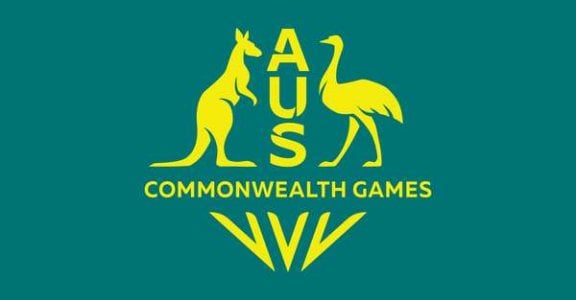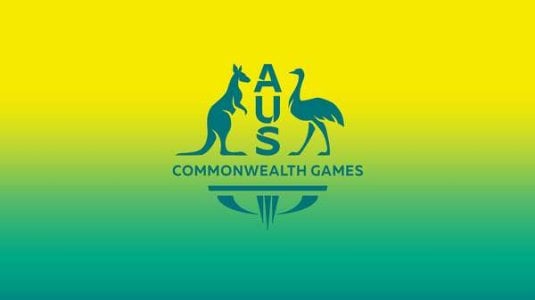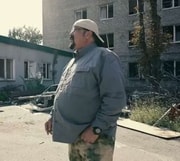Is anyone willing to catch Victoria’s $7B Games Hot Potato?
Just when you thought you'd heard it all, enter the $7 billion hot potato nobody wants to catch.
If this sounds like a game you played as a kid, you're not far off. Only this time, we're not talking about schoolyard fun.
We're talking about the increased budget for the 2026 Commonwealth Games following Victoria's unexpected decision to skip the hosting duties.
Victorian Premier Daniel Andrews recently let slip that the price tag for the Games has ballooned to a whopping $7 billion, almost triple the early estimate of $2.6 billion, and has decided to bow out of the hosting privileges.
This massive figure seems to be a hot potato no other Australian state or city wants to catch.

In response, there’s a resounding 'No, thanks!' being echoed from Western Australia, Queensland, South Australia, and New South Wales.
South Australian MP, Tom Koutsantonis, asserted, 'It’s off our agenda' because 'it’s not value for money'.
WA Premier Roger Cook labelled the Games 'ruinously expensive', further elaborating that 'they aren't what they used to be'.
These sentiments highlight the unease plaguing these states regarding the hefty budget.
Meanwhile, acting mayor Donna Gates of the Gold Coast ruled out any rescue operations for the event, citing considerable responsibilities and prohibitive costs as her primary concerns.
Following suit, NSW Premier Chris Minns also confirmed that his state would not pursue a bid to host the Games.
Similarly, across the Tasman, New Zealand also let the Andrews hospital pass fly by.
During the unexpected announcement, Andrews expressed his unwillingness to host the event in Victoria ‘at any cost’, emphasising the importance of ensuring lasting benefits for Victorian communities and the entire state.

In a departure from the format of previous Commonwealth Games, the 2026 edition was planned to be hosted in multiple regional cities rather than a single major city.
The event was scheduled to span over a period of 12 days, taking place in March 2026.
He firmly stated, ‘Six-seven billion is well and truly too much for a 12-day sporting event.’
He further explained that he is unwilling to allocate funds from hospitals and schools to finance an event three times the initially estimated and budgeted cost from the previous year.
Shifting from economic costs to the measure of things in human terms, Craig Phillips, CEO of Commonwealth Games Australia, speaks for the collective sentiment when he describes this fallout as 'beyond disappointing' and 'a comprehensive let-down for the athletes'.

In light of this, we want to ask you: why would any state or territory want to spend so much money on this when there are more essential things that require funding?
Do you think it's necessary to keep spending billions on events like the Commonwealth and Olympic Games in Australia?
While we're left musing over the fate of the 2026 Games, let’s cherish memories of roaring crowds and thrilling victories from the past.
We encourage you to share your thoughts on this topic by commenting below.
If this sounds like a game you played as a kid, you're not far off. Only this time, we're not talking about schoolyard fun.
We're talking about the increased budget for the 2026 Commonwealth Games following Victoria's unexpected decision to skip the hosting duties.
Victorian Premier Daniel Andrews recently let slip that the price tag for the Games has ballooned to a whopping $7 billion, almost triple the early estimate of $2.6 billion, and has decided to bow out of the hosting privileges.
This massive figure seems to be a hot potato no other Australian state or city wants to catch.

According to Premier Daniel Andrews, the expenses associated with hosting the Games have increased significantly, amounting to billions of dollars. Source: Commonwealth Games
In response, there’s a resounding 'No, thanks!' being echoed from Western Australia, Queensland, South Australia, and New South Wales.
South Australian MP, Tom Koutsantonis, asserted, 'It’s off our agenda' because 'it’s not value for money'.
WA Premier Roger Cook labelled the Games 'ruinously expensive', further elaborating that 'they aren't what they used to be'.
These sentiments highlight the unease plaguing these states regarding the hefty budget.
Meanwhile, acting mayor Donna Gates of the Gold Coast ruled out any rescue operations for the event, citing considerable responsibilities and prohibitive costs as her primary concerns.
Following suit, NSW Premier Chris Minns also confirmed that his state would not pursue a bid to host the Games.
Similarly, across the Tasman, New Zealand also let the Andrews hospital pass fly by.
During the unexpected announcement, Andrews expressed his unwillingness to host the event in Victoria ‘at any cost’, emphasising the importance of ensuring lasting benefits for Victorian communities and the entire state.

Speaking to the media after rumours of Victoria's withdrawal from hosting the event started circulating, Andrews expressed his stance on the matter. The official Victoria 2026 website, which had not been updated to reflect the recent development, promoted the event as a ‘game-changer’ due to its unique and adaptable approach, which was described as ‘unprecedented in the history of the event’. Source: Commonwealth Games
In a departure from the format of previous Commonwealth Games, the 2026 edition was planned to be hosted in multiple regional cities rather than a single major city.
The event was scheduled to span over a period of 12 days, taking place in March 2026.
He firmly stated, ‘Six-seven billion is well and truly too much for a 12-day sporting event.’
He further explained that he is unwilling to allocate funds from hospitals and schools to finance an event three times the initially estimated and budgeted cost from the previous year.
Shifting from economic costs to the measure of things in human terms, Craig Phillips, CEO of Commonwealth Games Australia, speaks for the collective sentiment when he describes this fallout as 'beyond disappointing' and 'a comprehensive let-down for the athletes'.
Key Takeaways
- Premier Daniel Andrews revealed the cost of hosting the 2026 Commonwealth Games would be around $7 billion, almost triple the original estimate.
- New South Wales, Western Australia, Queensland and South Australia declined the possibility of stepping in to host the event after Victoria's removal.
- The Games were not scheduled to be held in one major city but across several regional cities and set to run over 12 days in March 2026.
- The immediate question arises about how the budget was so drastically misjudged and the cost to the state to exit the contract. Commonwealth Games Australia CEO Craig Phillips described the decision as 'a comprehensive let-down for athletes'.
In light of this, we want to ask you: why would any state or territory want to spend so much money on this when there are more essential things that require funding?
Do you think it's necessary to keep spending billions on events like the Commonwealth and Olympic Games in Australia?
While we're left musing over the fate of the 2026 Games, let’s cherish memories of roaring crowds and thrilling victories from the past.
We encourage you to share your thoughts on this topic by commenting below.







